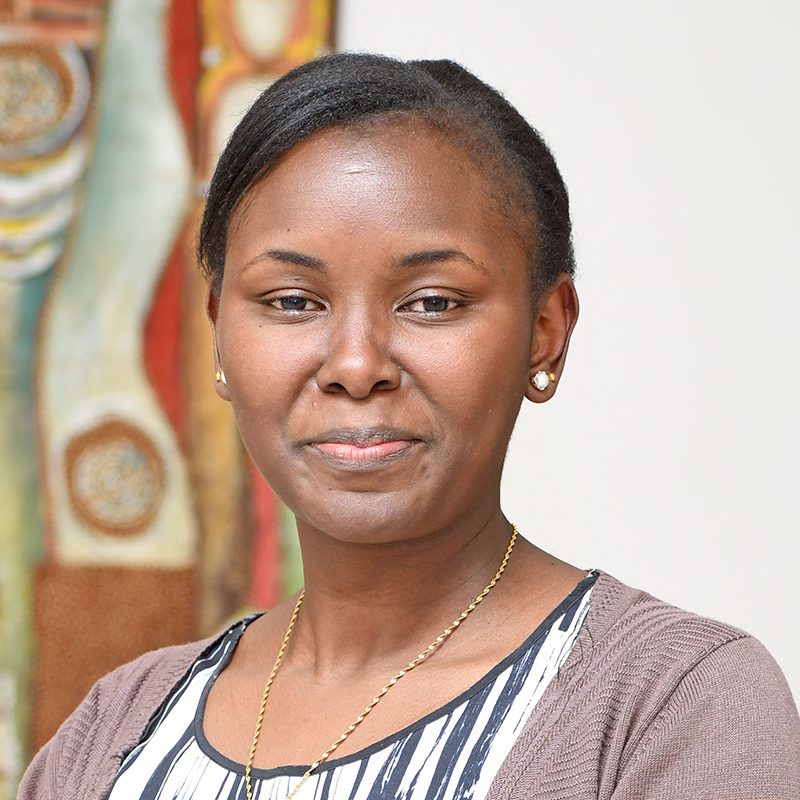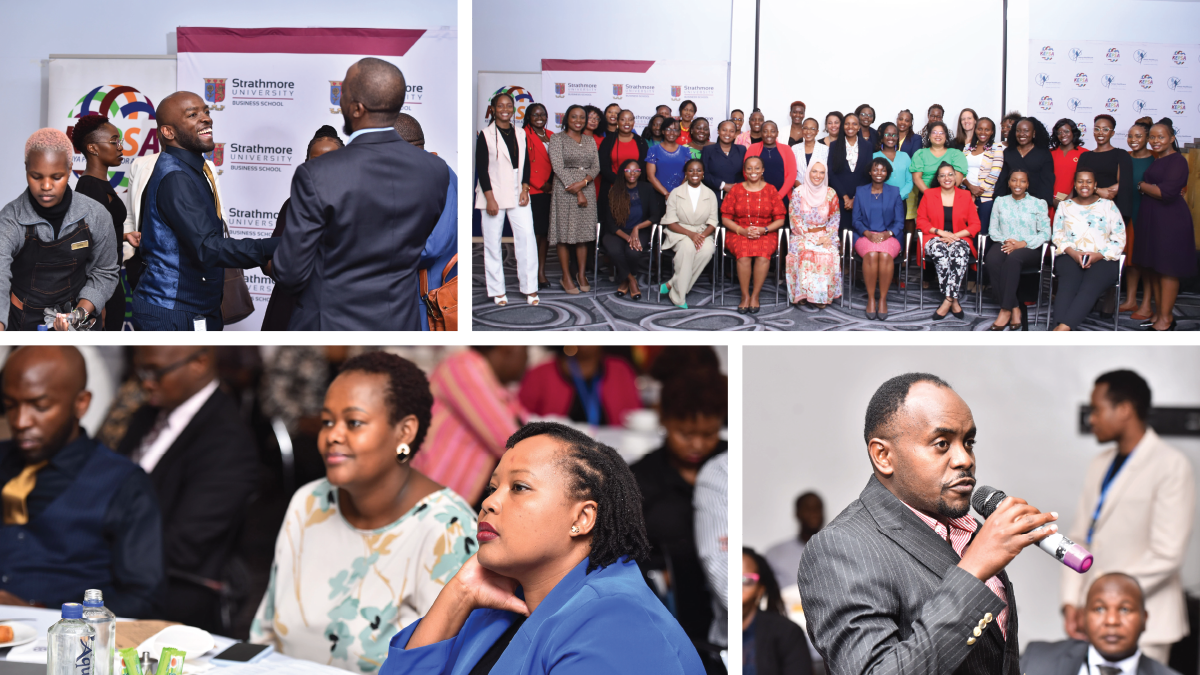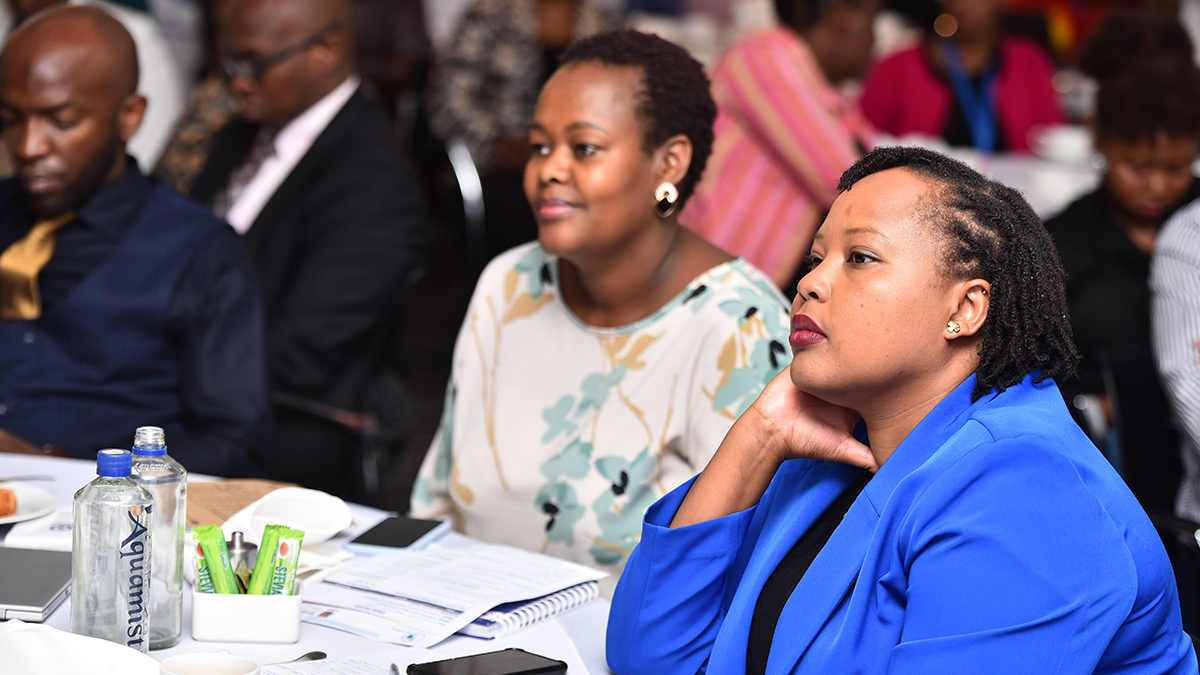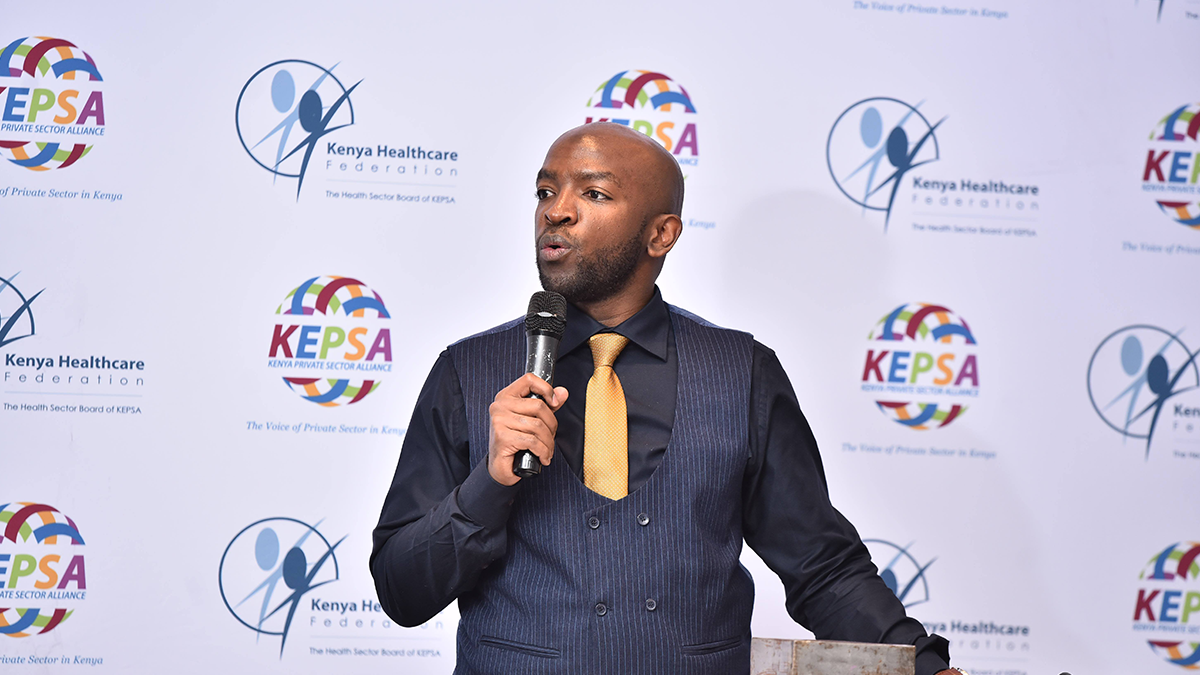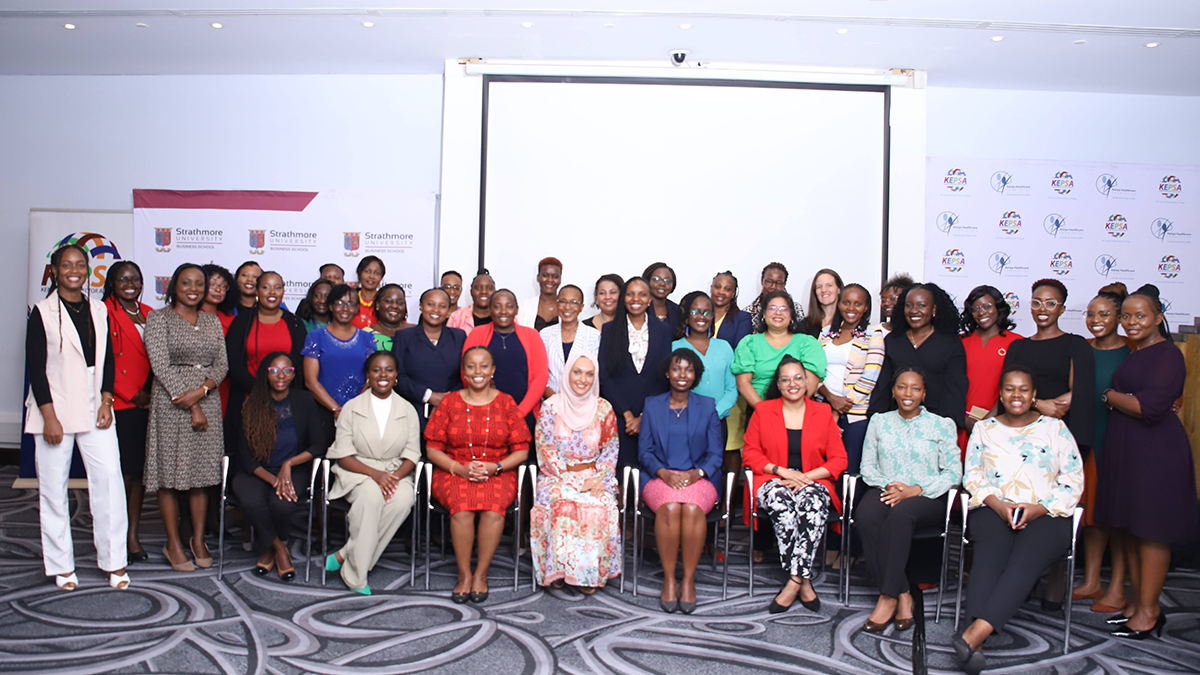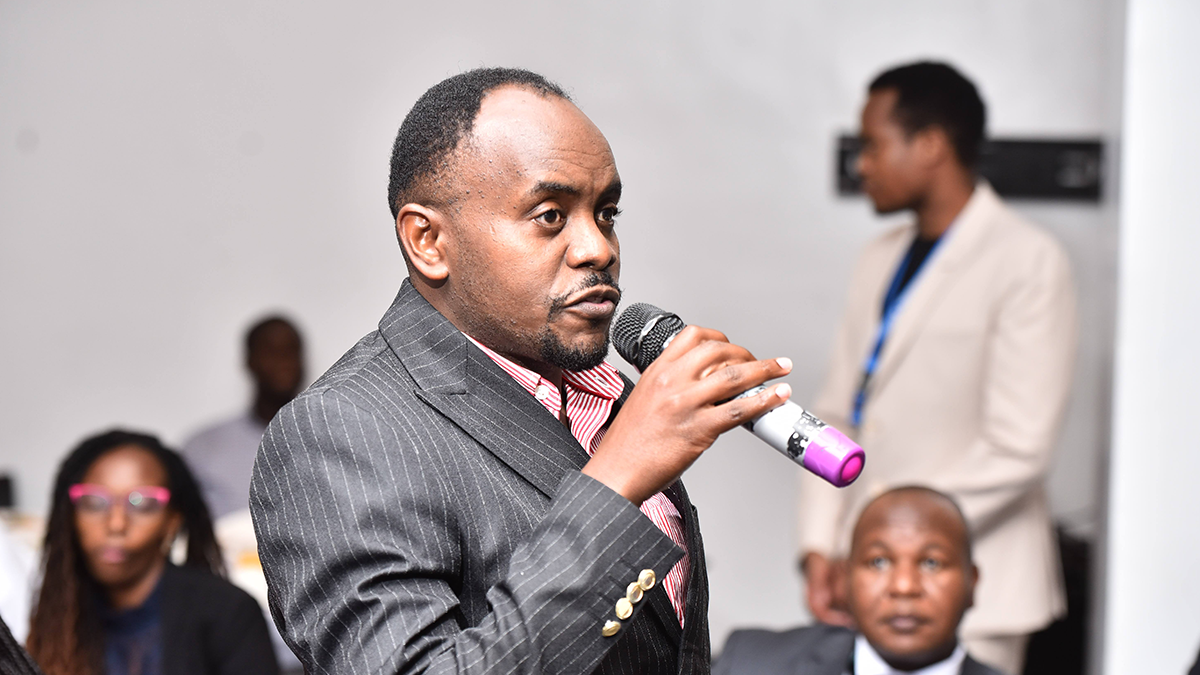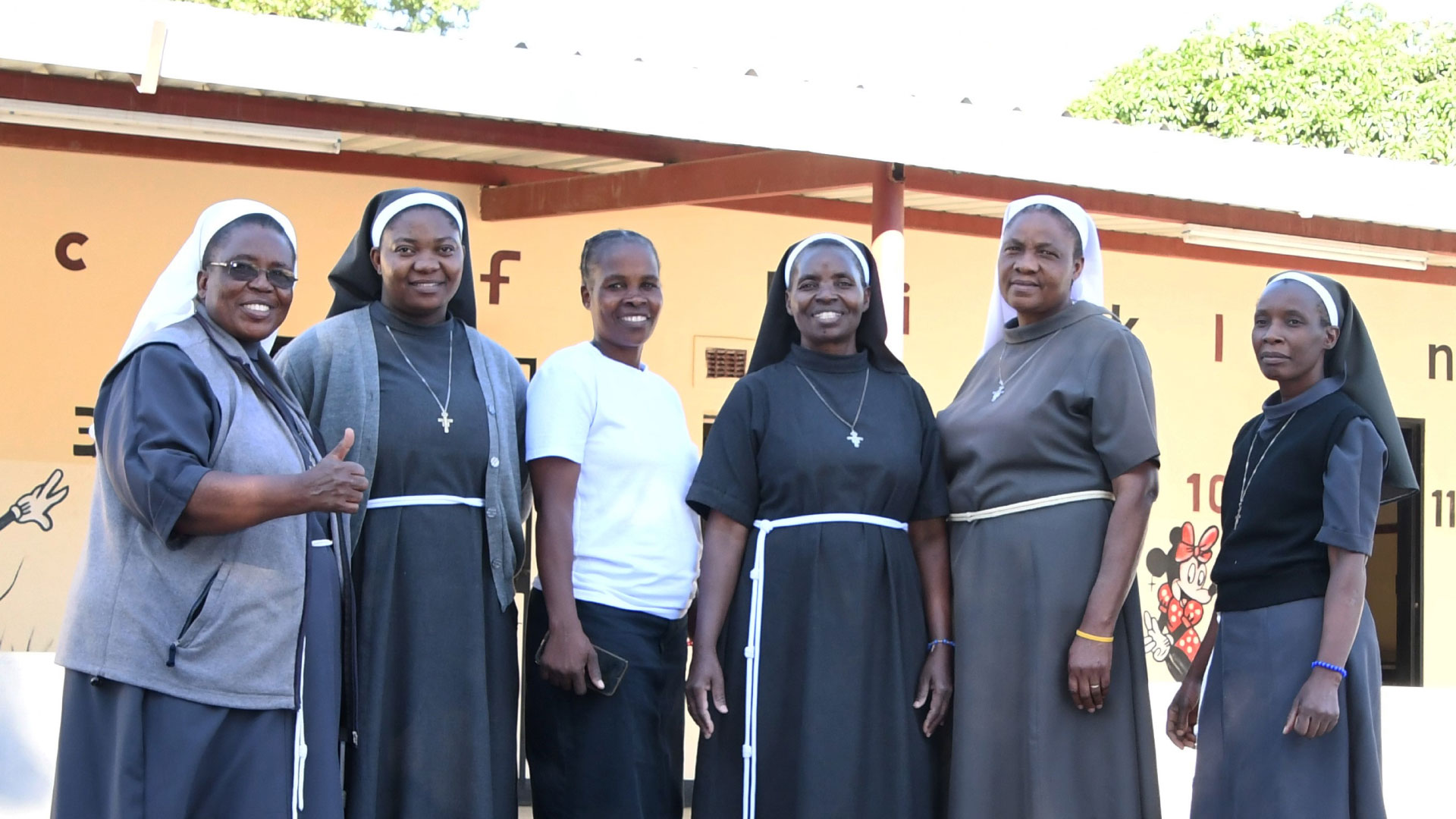On Friday, 25th August 2023, Kenya Strathmore University Business School in partnership with Kenya Healthcare Federation hosted the annual ‘KHF CEOs Forum’ at Trademark Hotel, Nairobi.
The objective of this forum, themed ‘Accelerating Progress towards SDG 5 in healthcare’, was to bring together healthcare sector CEOs and directors for a discussion on nationally relevant and locally driven advocacy efforts to support healthcare institutions adopted sustainable and gendered practices that would consequently enable more women to rise and thrive at positions of leadership in the healthcare value chain.
One of the key highlights of this forum was the presentation by Strathmore University Business School on the Women in Healthcare Leadership (WIHL) Project, funded by the Bill and Melinda Gates Foundation. The WIHL Project is a vital initiative aimed at addressing challenges and creating opportunities for women to take up leadership positions within the healthcare sector. Collaboration is at the heart of this project, involving various stakeholders such as healthcare institutions, professional organizations, governments, and individual leaders, all of whom were well represented at the CEOs Forum.
In the context of women in healthcare leadership in Kenya, collaboration involves efforts from various stakeholders, including healthcare institutions, professional organizations, governments, and individual leaders; who were well represented at the CEOs Forum.
Some of the crucial aspects towards realizing SDG 5 highlighted by both Strathmore Business School and the Kenya Healthcare Federation members during the round table forum included: Collaborative mentorship and sponsorship programs which play a crucial role in supporting the career growth of women in healthcare. These initiatives involve senior leaders, both men and women, guiding and advocating for junior female professionals. By sharing experiences, providing guidance, and opening doors for opportunities, mentors and sponsors can help bridge the gender gap in leadership. In terms of breaking systemic barriers, collaboration at the systemic level should primarily involve policies, structures and culture changes at organizational level. Transparent reporting and accountability mechanisms, in relation to governmental bodies and healthcare associations fostering environments of gender equality, were also established as necessities towards achieving the targets of SDG 5.
The journey to achieving gender parity in healthcare leadership demands collaborative actions at every level of the organization. Beyond mentorship and sponsorship programs, systemic barriers must be addressed through collaborative efforts. This involves implementing policies, restructuring organizational structures, and fostering a culture of inclusivity. Transparent reporting and accountability mechanisms are essential, both within governmental bodies and healthcare associations, to create environments that promote gender equality.
Article by Judith Adhiambo Amolo
Share This Story, Choose Your Platform!
Your journey to business excellence starts here. Subscribe today and be at the forefront of innovation and leadership.

